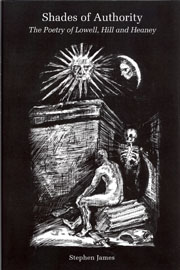Authority and Eccentricity
from Essays on Geoffrey Hill
Summary
A conception of poetry as public utterance, shaped with a regard for the public good, has repeatedly found expression in the writings of Geoffrey Hill. In his essay ‘The Eloquence of Sober Truth’, Hill has even hinted at a connection between the prerogatives of the individual citizen and the exercise of an individual poetic voice: ‘the question of polity’, he observes, ‘is, at its most basic level as also in the most elevated language of response, that of entitlement to speak, one's right to claim authority, albeit as a private person contending in – and with – a public matter’ (SF 116). Given the frequency of Hill's observations on language itself as the ‘public matter’ ‘in’ and ‘with’ which the poet necessarily contends, it is tempting to infer from his words a suggestive connection between poetry and polity. Yet Hill is under no illusions about the limitations of the poet's public voice. He knows that insofar as any authority may be achieved in one's art it can only, at best, be of the kind described when, in the essay ‘Keeping to the Middle Way’, he considers the prose works of Robert Burton and Thomas Nashe:
It is as if the effort ‘to translate wisdom into political action’ […] translates itself […] into the praxis of an individual style. The energy has to go somewhere; since it cannot realize itself as a legislative act, it turns back into the authority and eccentricity of style itself.
(SF 54–55)- Type
- Chapter
- Information
- Shades of AuthorityThe Poetry of Lowell, Hill and Heaney, pp. 65 - 81Publisher: Liverpool University PressPrint publication year: 2007

